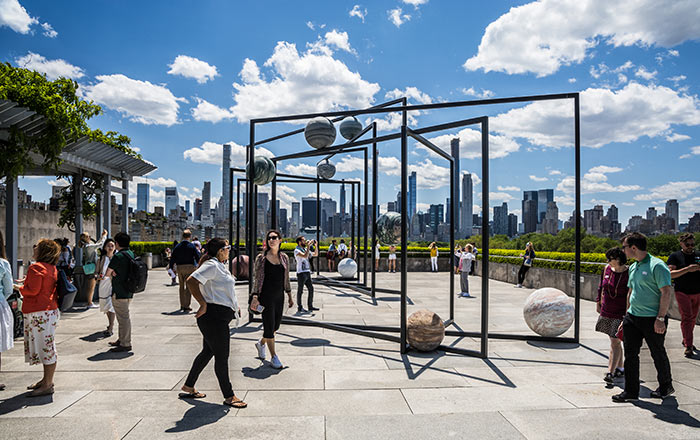Proposal for a Lighthouse in the Form of a Banana Peel, for the Coast of New Zealand
Claes Oldenburg American, born Sweden
Coosje van Bruggen American
Not on view
Claes Oldenburg redefined the idea of the monument through enormous reproductions of commercial and quotidian objects that are at once whimsical, irreverent, and absurd. He moved to New York after college in 1956 and quickly became a prominent figure in Happenings and performance art, but his plaster sculptures shown in 1961 at The Store, a display in his studio that parodied American consumerism, launched him to fame as a leading artist associated with the emergent Pop movement. Later that decade, Oldenburg embarked on a series of Proposed Colossal Monuments, renderings in pencil or watercolor that transformed a familiar site or geographic location through a startling sculptural intervention.
A late drawing from this series by Oldenburg and Coosje van Bruggen, the artist’s longtime collaborator and second wife, this sheet indicates a surrealist proposal for a lighthouse shaped like a banana peel, which fails as a functional object – a lighthouse that doesn’t illuminate. Its splayed form is more reminiscent of a wind turbine than a lighthouse, a possible recognition of contemporaneous debates around climate change.
This image cannot be enlarged, viewed at full screen, or downloaded.
This artwork is meant to be viewed from right to left. Scroll left to view more.

